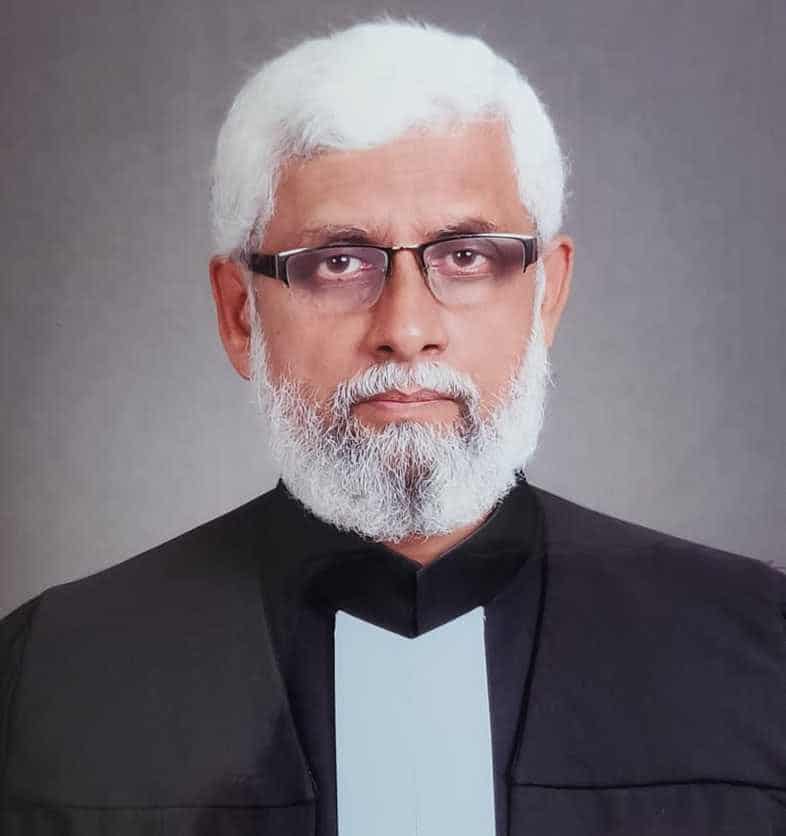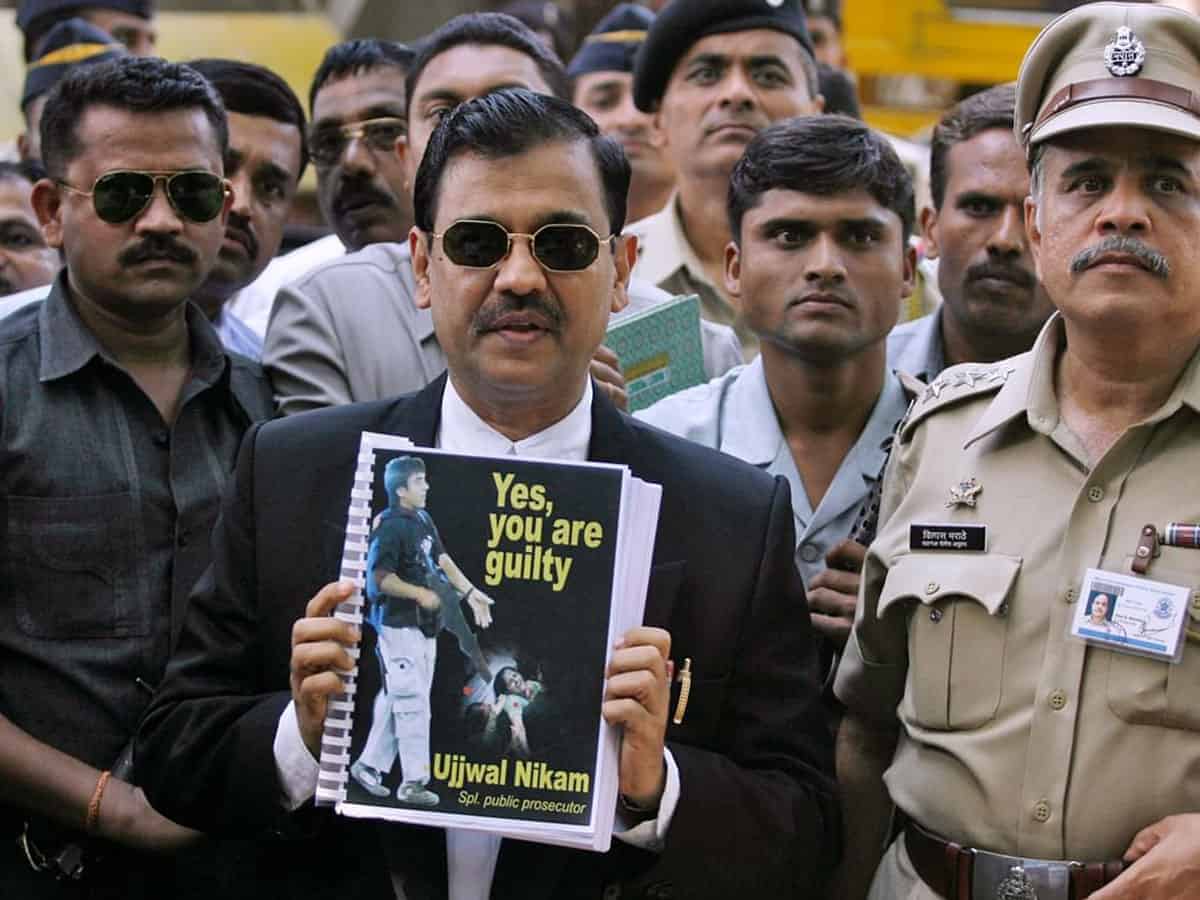
This chap, Ajmal Kasab who came and did bad things, was caught tried sentenced executed…according to law… Till verdict only the judge would know what he is likely to decide. A day or an hour earlier than pronouncement, his stenographer may know. One slight problem in this instance: inconveniently, the day of the verdict, the press said a book was released… same day, about same man, same event and same trial and… it announced the verdict as well: the title was “you are guilty”.
A bit inconvenient, because the day of the sentencing if there is a book the press says is released, and it carries the title “you are guilty”, one wonders whether, how and when the author predicted the result. The author, the press says was the public prosecutor. Was he writing while the trial was in progress? Imagine the hard work: in court all day, analysing evidence by night, briefing witnesses, discussing with officials researching case law, time to travel (Mumbai traffic, remember), and writing a book! What stamina! Then, if the book was sent to publishers, printed, distributed (it takes very many days) and kept ready for sale the same day as the verdict, (inconvenient stupid question) how did it anticipate the verdict by so many days? Can it be that some people achieve the impossible almost acquiring awareness of the almost unknown? Amazing talent, what?!
We had a news item once. Urdu text books, the press announced, were being conveniently made available to students of intermediate etc., who were advised to acquire them. Very good step. Making books conveniently available in Urdu for the most loved language in the country… See how much the government cares about Urdu speaking students.
Problem? Conveniently, we have an Urdu academy in the state. Very good, baba, magar problem kyaa hai? Inconveniently, the publishing was done by… You guessed it again! Telugu Academy! Urdu sections in schools are deliberately closed down, students turned away saying there is no teacher, teachers applying for jobs told there is no student seeking to study Urdu. We have an Urdu academy and the publishing was done by Telugu academy? Impossible! No: just inconvenient.
Possibly, (only possibly, mind you: we are actually considering impossibilities) the day the Urdu academy is allowed to acquire infrastructure, the movement towards orchestrated demise of the language ends… So “do things for” it, denying it the capacity to itself do anything, make it and its functionaries cripples, and over time, since it “requires” no funds (yaar, it does nothing, na?) switch off its budget… No more possibility of its acquiring any infrastructure… Death by starvation… Not impossible, not inconvenient… And someone explain… if the Telugu Academy publishes Urdu books, what work should the Urdu academy do…?
Another old news item. One Mr Vishwa Lochan Madan is so concerned about the fundamental rights of Muslims that he wants Shariah courts declared unconstitutional. Amazing concern, what?! “Shariah courts” if they delivered binding judgements at all (are there such courts operating? I must be a pretty a stupid lawyer, because I had no clue about this) would do so between Muslims voluntarily submitting to their jurisdiction. As a tolerant secular Indian, definitely not Muslim, Mr Madan is unaffected. However, he is so secular and intensely tolerant that he cannot tolerate Muslims having their disputes settled in shariah courts according to principles of Islamic law…
Hum musalmaanaon ki khismath toh dekho: har koi hamaari himaayath ke liye khaddaa ho jaathaa hai! Bechaaray Madan bhai: khudd ki masroofiyath mein se qeemthi waqt nikaal kar dekho kaise insaaf ke liye jadd-o-jihaad kar rahay hain! Hamaaray liye kyaa ba’as-e-sahoolath va ba’as-e-fakhr baath hai!
Inconvenient problem one: if in court they say they want to have arbitration (Arbitration & Conciliation Act is of 1996) done by the local moulvi or their maid-servant or rickshaw puller (whether Muslim or not) can the court deny them that right? No, it is required to encourage them! Can it then proceed with the matter? No, it stands prohibited. Toh phir?
Inconvenient problem two: no such arbitration award (for that matter no court judgement) can validly impact adversely any fundamental right of anyone… Phir sawaal hai what is the real reason for our dear friend Vishwa Lochan Madan being upset? Fundamental rights…versus mental wrongs? Lochan ke mind mein, a la Munnabhai, locha?
Inconvenient problem three: a fatwa is an opinion expressed by a mufti when a problem is placed before him. If the problem is incorrectly expressed, the fatwa will be erroneous. Whether correctly or incorrectly expressed, a fatwa is just an opinion, not binding at all. Ask me for an opinion, I give it. Not binding! Ask Dar ul qaza, Dar ul uloom, Jama e Nizamia, anyone for an opinion, they give it. Just opinion, not binding! Not on parties, not on court. In fact, u/s 34 Indian Trusts Act, the opinion, advice or direction of even the Principal Civil Court of Original Jurisdiction, is not binding !
Inconvenient problem four: if a decision is rendered in arbitration, it is binding because the law says so! Whether Mr Madan likes it or not, and whether it is by an advocate or supreme court judge… or maidservant or rickshaw puller.
Ab bathaaiye, janaab e a’ala mohtaram Vishwa Lochan Madan saahab ki haqeeqi takleef kyaa hai? Janaab ki takleef Musalmanaon ke alleged (stop laughing, will you?) fundamental rights hain… Ya shariah hai… Ya ba-zaath-e-kkhud Muslims hain?
Inconvenient problem five: Yeh petition dismiss ho chukaa thhaa, phir restoration ki koshish jaari ki gayi… Kyaa civil society aur Muslim Personal Law se tha’alluq rakhnay vaalaon ko iss mein implead karwaana Adaalath ko zaroori nahin mehsoos huaa? Or will a decision be rendered in their absence, without notice to those who can throw light on the matter, and then it would be too late to do anything about it? Should hear matters of public concern, as if these are in personam matters?
At one stage, in instance after instance, accused persons were set free…and retrials saw them found guilty. How judges delivered a series of “erroneous” judgements is the mystery. No questions later as to how they reached the conclusions they did. After a sessions court convicted Muslims for terrorism, a High Court reversed the judgement asking in surprise how on such flimsy material police could try to build a case… How we wish it had also asked how, when the material was too flimsy for police to have even built a case, could the sessions judge, on that very flimsy material, have sentenced people to death?! Immunity is meant to protect judges’ independence, not act as cloak to shield and insulate them from consequences of wrong actions.
One person once spoke in Delhi, asking his “mitro” why India should not export teachers so we can capture minds of future generations in foreign countries! Brilliant. Also Inconvenient. A party’s cadre attacks and vandalizes any person and institution that dares to speak what he believes true, or expresses views they are allergic to: many things like Kashmir, Muslims, minority, reservation, celebrating festivals they don’t agree with, preventing distortions of history… anything! With zero willingness to allow even free speech, let alone any debate or argument on any issue worth the name, what education do we have, and can have, in our country? Creating hype and illusion about wonderful prospects for the youth in a bright shining India that is going to now export zillions of “teachers” from non-performing institutions of non-learning, churning out zombies holding degrees they have hardly any entitlement to, the facts are brushed under the carpet and falsehood relied on. Fool the youth, get them to elect us thinking their problems will dissolve… Convenient, but brazenly wishful thinking.
There is only one way ahead, and that is to face facts. My daddy strongest sounds good from a kid in an advt. Let me end with a profound quote: “We can easily understand when a child is afraid of the dark. The real tragedy is, that men are afraid of the light.”
Shafeeq R. Mahajir is a well-known lawyer based in Hyderabad

